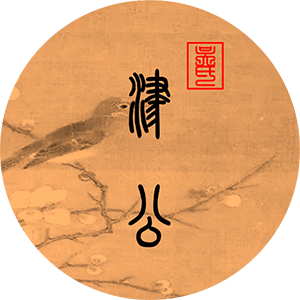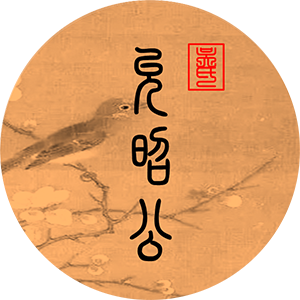
Wu Jin (1133-1196), courtesy title Zhongdeng, the eldest son of Wu Fu, attained Jinshi degree in the fifth year of the Qiandao reign (1169). He served as Xuanjiaolang (宣教郎),Zhizhou (知州) of Chuzhou(place name, now Lishui), Tianchai(添差)of Lishui County and Sub-Prefect (通判) of Shaoxing prefecture. In the tenth year of Chunxi, his parents died within a short period of each other, and he returned home to observe mourning. Moved by his profound grief and filial piety, ganoderma lucidum sprang up on the lintel. His piety, evoking sighs of admiration, was also documented in poetry. When he had completed his mourning period, he was appointed as a military officer in Guangde, Anhui Province, and then as a military officer in Xinghua and later, as Grand Master in the imperial court. He died at home at the age of 64, on the fourth day of the eighth month of the second year of the Southern Song Dynasty (1196).
Wu Jin was a man of high aspirations who did not indulge meaningless things. He was a keen student, well-versed in a wide range of books, especially the Selected Works 《文选》from which he memorized numerous passages. He had learned a great deal from his parents about holding public office and during his time as Tianchai in Lishui County, he solved cases in a timely manner, ruled strictly on theft, and supported the people in their desire to live well-regulated lives. He was the sub-prefect of Shaoxing, when Zhu Xi was the governor and was appointed to deal with famine relief, travelling around the countryside showing compassion and understanding for the sufferings of the people. He was commended for his wide knowledge and ability to deal with government work. During his period of office in Guangde, Anhui Province there was a severe drought that made it impossible to cultivate the land and caused food prices to soar. Wu Jin fasted with great intensity and went into the mountains to pray for rain. The people who accompanied him were deeply moved. He also released minor offenders, reduced taxes, lowered the price of wine, inspected the waterworks in person and listened to the people. It was said that he left office “with a great many books, and the people saw him off with two lines of tears.” On the day he left, thousands of people flocked to see him off. An old man knelt down and sobbed, “Dear Sir, why did you come so late and leave so soon?”
Like his father Wu Fu, Wu Jin was a kind-hearted, generous man who cared for his neighbors, provided relief to the poor and was devoted to charity. It is recorded in the Taizhou Prefectural Records that “Duke Kang Su (Wu Fu) does many favors to the neighbors by giving food to the poor, medicine to the sick, and coffins for the dead. Wu Jin inherited such practices.” He also built a shrine to his father, to bring his memory to life. He honored those his parents had respected showing them the same courtesy that his parents had. He was solemn and tranquil, thrifty and diligent. Wu Jin's poetry and articles were composed in a style that was plain and unadorned. He could finish a poem very quickly, and his poems reflected his father’s grace. And in his home he kept a collection of fifteen volumes of these works.
Wu Jin had four sons: his eldest son, Wu Ji (吴机), became a court official who was the military Zhizhou (知州) of Jizhou (Ji'an County, Jiangxi); his second son, Wu Po (吴朴), held a position as Tong Zhi Lang (通直郎), servied as the county prefect of Yin County, Ningbo; his third son, Wu Shi (吴栻), held a position as Di Gong Lang (迪功郎), served as the chief magistrate of Fuqing County, Fujian; and his fourth son, Wu Biao(吴标), also a Di Gong Lang, served as the lieutenant and secretary of Kaihua County. The second son, Wu Po, became the son-in-law of the Shi family of Siming Mountain during his time as the prefect of Yin County in Ningbo. Wu Po’s daughter married the third son of Lou Yao (楼钥), a famous minister and literary scholar of the Southern Song Dynasty.
Wu Jin’s epitaph was written by Lou Yao himself and his tomb is located in East Ao of Guo Tan Mountain. In 1978 the construction of Gu Tan reservoir severely damaged the tomb path.
家谱传记
地方志
国史记载


